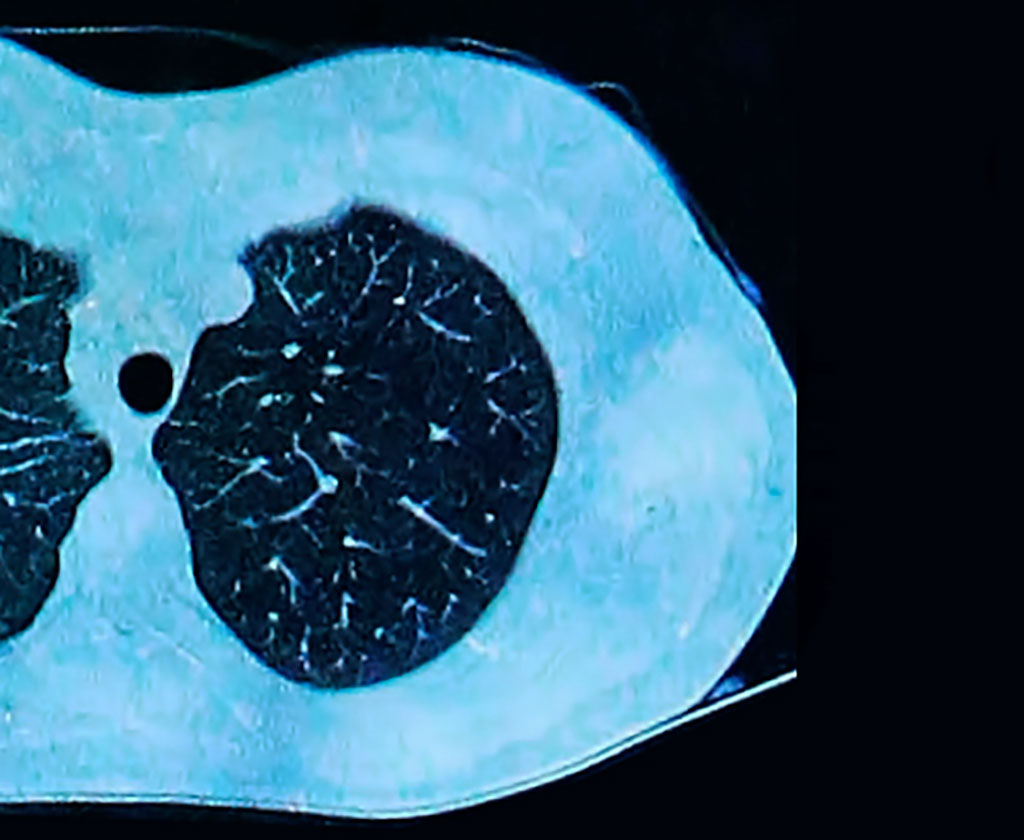Non-Invasive Nasal Swab Test Leverages Advanced Genomic Technology to Detect Lung Cancer Risk
Posted on 25 Oct 2021
A novel, non-invasive nasal swab test could support more timely and accurate lung nodule diagnosis.
Veracyte, Inc. (South San Francisco, CA, USA) has announced that new expanded clinical validation data reinforce the ability of the company’s noninvasive Percepta Nasal Swab test to help physicians more accurately assess lung cancer risk in patients with lung nodules. The findings also show that the test delivers strong clinical performance across different nodule sizes and cancer stages in current or former smokers, and for patients who have already had other cancer(s). The new data underscore the Percepta Nasal Swab test’s ability to help physicians more accurately, quickly and confidently determine which patients with lung nodules found on computerized tomography (CT) scans may avoid unnecessary invasive procedures and which should proceed to diagnostic work-ups and obtain treatment if necessary. Veracyte has begun making the Percepta Nasal Swab test is available to a limited number of clinical sites.

The Percepta Nasal Swab test’s robust performance in classifying lung cancer risk was previously demonstrated in a blinded, independent validation set of 249 patients from multiple cohorts comprising prospectively collected nasal samples. All patients were current or former smokers undergoing evaluation for lung nodules found on CT scans. Patients were followed for up to one year or until physicians made a final, adjudicated diagnosis. The new expanded data being presented at this year’s CHEST meeting include 63 additional patients with prior (non-lung) cancers who were part of a planned secondary endpoint analysis.
In the expanded cohort of 312 patients, when the Percepta Nasal Swab test identified patients as low risk, its sensitivity was 97%, providing a negative predictive value (NPV) of 98% in a population with the 25% cancer prevalence that would be expected in a broad cohort with suspicious lung nodules. This NPV would assist physicians in avoiding unnecessary invasive procedures in these patients with a very small likelihood of missing a cancer. When the test identified patients as high risk, its specificity was 92%, for a positive predictive value (PPV) of 70% at a malignancy rate of 25%. This PPV would assist physicians in directing these patients to further procedures so they could obtain an accurate diagnosis and speed time to treatment if necessary. Patients in the moderate risk group could be managed according to current clinical guidelines.
In a sub-analysis of the expanded validation set, researchers found that the Percepta Nasal Swab test’s performance is strong across different nodule sizes, with the test identifying 67% of cancers in nodules below 8 mm as moderate risk, while labeling 100% of malignant nodules greater than or equal to 8 mm as high or moderate risk. Performance was also consistent across all stages of non-small cell lung cancer (NSCLC), with 100% of NSCLC Stage II or greater cancers labeled as moderate or high risk.
The Percepta Nasal Swab test and GSC use advanced genomic technology to detect smoking-related damage associated with lung cancer in the respiratory tract of current or former smokers. Both tests are part of Veracyte’s comprehensive lung cancer portfolio, which aims to transform care at every step of the patient journey. Collectively, the company’s tests are leveraging cutting-edge genomic science and technology to provide answers and insights that enable physicians and patients to make better, faster and more confident care decisions. Veracyte’s lung cancer portfolio also includes the in-development Percepta Genomic Atlas, which is intended to detect gene alterations that may inform lung cancer treatment decisions, using the same small biopsy that was collected for diagnosis.
“Our findings reinforce the Percepta Nasal Swab test’s ability to more accurately identify patients as low, moderate or high risk for lung cancer so that physicians can make more confident decisions about next steps for their patients,” said Carla R. Lamb, M.D., interventional pulmonologist at Lahey Hospital & Medical Center.
“These findings suggest that the Percepta Nasal Swab test will provide significant clinical utility across a range of lung nodule sizes and lung cancer stages,” added Giulia C. Kennedy, Ph.D., Veracyte’s chief scientific officer and chief medical officer. “We are excited to begin offering the test to sites as part of our clinical utility study and to transform lung cancer early assessment so that more unnecessary procedures can be avoided and more lives can be saved.”
Related Links:
Veracyte, Inc.













